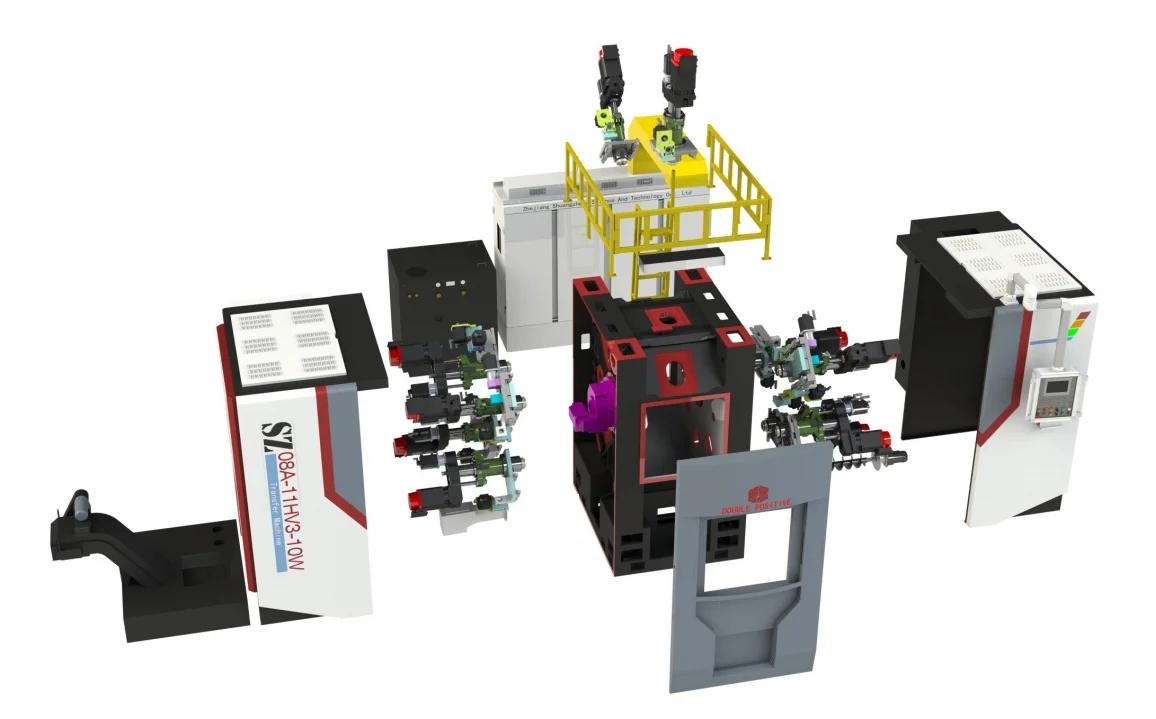Describe the purpose of the ball valve assembly machine

Numerical control technology is an important foundation and key technology of machining modernization. The application of CNC machining can greatly improve productivity, stabilize the processing quality, shorten the processing cycle, increase the flexibility of production, realize the automatic processing of various complex precision parts, easy to implement computer management in the factory or workshop, but also reduce the total number of workshop equipment, save manpower, improve working conditions, and help speed up the development and replacement of products. Improve the adaptability of enterprises to the market and improve the comprehensive economic benefits of enterprises. The application of numerical control machining technology has combined a large number of preparatory work and machining process, made the integration of computer-aided design (CAD), computer-aided process planning (CAPP) and computer-aided manufacturing (CAM) of parts become a reality, and made the flexible automation level of machining constantly improve.
Numerical control machining technology is also an important strategic technology for the development of military industry. The United States and Western countries have been blocking restrictions on China in terms of high-grade CNC lathes and processing technology, because the manufacturing of many advanced weapons and equipment, such as aircraft, missiles, tanks and other key parts, are inseparable from high-performance CNC lathes. China's aviation, energy, transportation and other industries have also introduced some high-end CNC equipment such as five-coordinate lathes from the West, but its use is subject to foreign monitoring and restrictions, and is not allowed to be used for military parts processing. All these show that CNC machining technology plays an important role in national defense modernization.
For efficient metal cutting, materials, tools and cutting conditions are the three major elements. This determines the ball valve assembly machine processing time, tool life and processing quality. An economical and effective machining method must be a reasonable choice of cutting conditions. Three elements of the cutting condition: cutting speed, feed rate and depth of cutting directly cause tool damage. With the increase of cutting speed, the temperature of the tip will increase, resulting in mechanical, chemical and thermal wear. When the cutting speed is increased by 20%, the tool life will be reduced by 1/2. The relationship between feed conditions and tool back wear will occur in a small range. However, the feeding amount is large, the cutting temperature is increased, and the back wear is large. It has less effect on the tool than the cutting speed. The effect of cutting depth on the tool is not as large as the cutting speed and feed, but when the cutting depth is small, the hardened layer of the cutting material will also affect the service life of the tool. The user should choose the cutting speed according to the material, hardness, cutting state, material type, feed rate, cutting depth, etc. On this basis, the appropriate process conditions are selected. Regular, stable wear can achieve the ideal state of life. However, in practical applications, the choice of tool life is related to tool wear, machining size changes, surface quality, cutting noise, machining heat and other factors. When determining the processing conditions, research must be carried out according to the actual situation. For hard-to-process materials such as stainless steel and heat-resistant alloys, coolants or rigid blades can be used.
The ball valve assembly machine base is cast with resin sand as a whole, which has strong impact resistance and small lathe deformation, ensuring the high rigidity and high precision of the lathe. Widely used in electronics, communications, fax machines, printers and other long axis parts processing. The lathe control system is temporarily equipped with the new generation Taiwan system (other systems can be optional).
ball valve assembly machine https://www.zjshuangzheng.com/Rotary-Table-Intelligent-Assembly-Machine.html
- Art
- Causes
- Crafts
- Dance
- Drinks
- Film
- Fitness
- Food
- Games
- Gardening
- Health
- Home
- Literature
- Music
- Networking
- Other
- Party
- Religion
- Shopping
- Sports
- Theater
- Wellness


